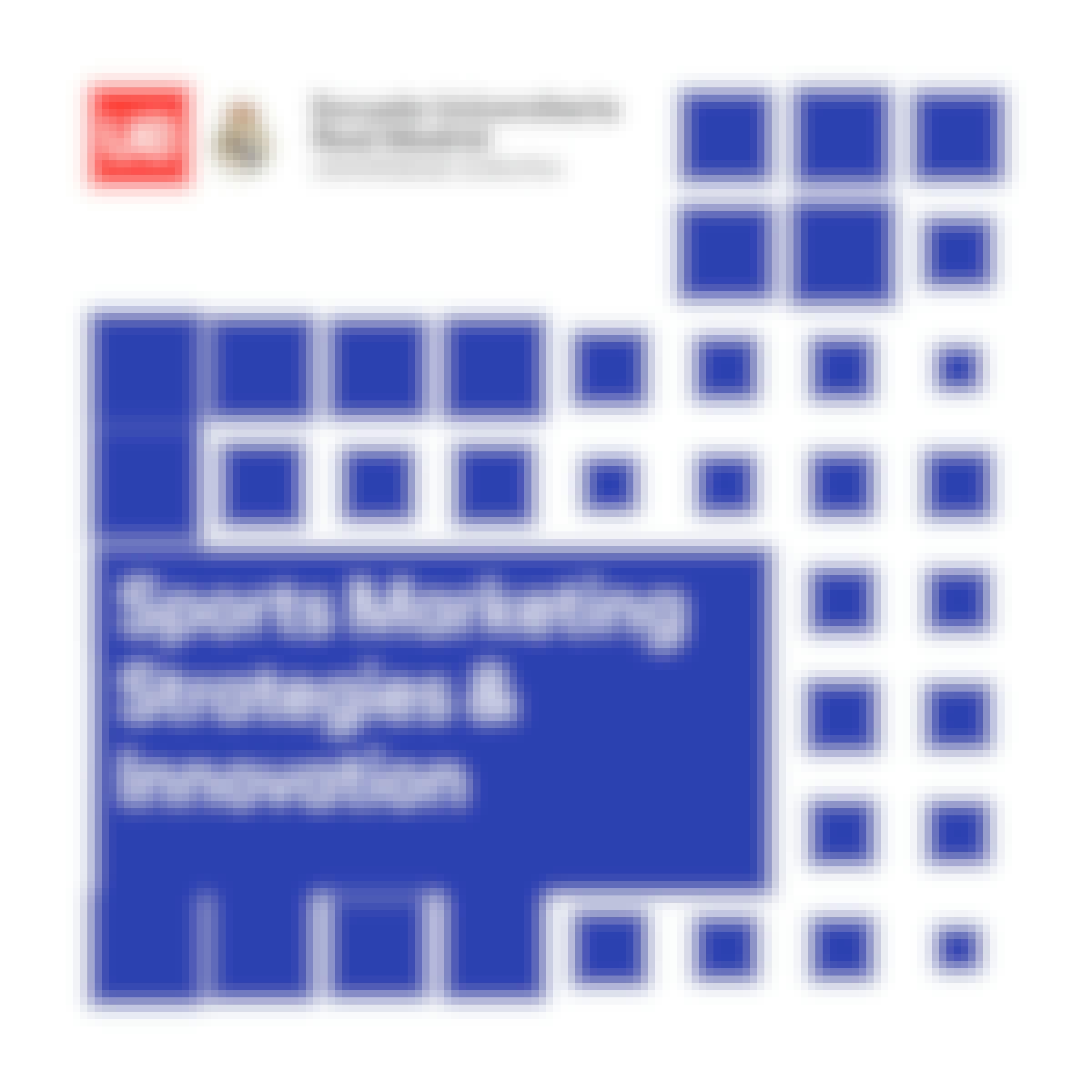- Browse
- Social Entrepreneurship
Social Entrepreneurship Courses
Social entrepreneurship courses can help you learn business model development, impact assessment, social innovation strategies, and community engagement techniques. You can build skills in fundraising, stakeholder collaboration, and measuring social impact effectively. Many courses introduce tools like the Business Model Canvas and social impact metrics, that support applying your skills in real-world projects and evaluating the success of your initiatives.
Popular Social Entrepreneurship Courses and Certifications
 Status: Free TrialFree TrialU
Status: Free TrialFree TrialUUniversity of Michigan
Skills you'll gain: Constructive Feedback, Cooperation, Independent Thinking, Empathy, Rapport Building, Teamwork, Collaboration, Relationship Building, Diversity and Inclusion, Emotional Intelligence, Cognitive flexibility, Communication
Beginner · Course · 1 - 4 Weeks
 Status: PreviewPreview
Status: PreviewPreviewSkills you'll gain: Facebook, Social Media Content, Social Media Management, Content Strategy, Social Media Marketing, Social Media Strategy, Drive Engagement, Live Streaming, Social Media Campaigns, Content Management, Community Development, Content Creation, Scheduling
Beginner · Course · 1 - 4 Weeks
 Status: NewNewStatus: Free TrialFree Trial
Status: NewNewStatus: Free TrialFree TrialSkills you'll gain: Social Media, Social Media Marketing, Instagram, Video Editing, Professional Development, Customer Engagement, Branding, Marketing Collateral, Portfolio Management, Creativity
Mixed · Course · 1 - 4 Weeks
 Status: PreviewPreview
Status: PreviewPreviewSkills you'll gain: Facebook, Target Audience, Social Media Management, Social Media Strategy, Social Media Marketing, Content Strategy, Content Marketing, Goal Setting, Business Development, New Business Development, Live Streaming
Beginner · Course · 1 - 4 Weeks

Skills you'll gain: Canva (Software), Marketing Materials, Email Marketing, Marketing Design, Promotional Materials, Online Advertising, Social Media Campaigns, Graphic Design, Content Marketing, Graphic and Visual Design, Social Media Marketing, Product Promotion, Digital Marketing, Business Communication
Beginner · Guided Project · Less Than 2 Hours
 Status: PreviewPreviewS
Status: PreviewPreviewSS.P. Jain Institute of Management and Research
Skills you'll gain: Emotional Intelligence, Empathy, Self-Awareness, Personal Development, Mindfulness, Cognitive flexibility, Stress Management, Creativity, Resilience, Critical Thinking and Problem Solving, Adaptability, Decision Making
Beginner · Course · 1 - 3 Months
 Status: Free TrialFree TrialR
Status: Free TrialFree TrialRRutgers the State University of New Jersey
Skills you'll gain: Environmental Social And Corporate Governance (ESG), Purchasing, Procurement, Consolidation, Strategic Sourcing, Supply Management, Supplier Management, Corporate Sustainability, Knowledge Transfer, Diversity Programs, Performance Measurement
4.8·Rating, 4.8 out of 5 stars9 reviewsIntermediate · Course · 1 - 4 Weeks
 Status: NewNewStatus: FreeFreeN
Status: NewNewStatus: FreeFreeNNovartis
Skills you'll gain: Health Disparities, Health Equity, Diversity Training, Clinical Trials, Clinical Research, Diversity Awareness, Clinical Research Ethics, Diversity Equity and Inclusion Initiatives, Cultural Diversity, Medical Science and Research, Cultural Sensitivity, Informed Consent, Social Determinants Of Health, Healthcare Ethics
5·Rating, 5 out of 5 stars8 reviewsBeginner · Course · 1 - 4 Weeks
 Status: Free TrialFree Trial
Status: Free TrialFree TrialSkills you'll gain: Professional Networking, Budget Management, Digital Marketing, Promotional Strategies, Marketing Strategies, Resilience, Brand Marketing, Strategic Partnership, Growth Strategies, Relationship Building, Brand Awareness, Brand Strategy, Business Relationship Management, Sustainable Business, Music Performance
Beginner · Course · 1 - 4 Weeks
 Status: FreeFree
Status: FreeFreeSkills you'll gain: Cash Flow Forecasting, Cash Flows, Strategic Decision-Making, Financial Analysis, Business Planning, Business Strategy, Financial Statements, Entrepreneurship, Business Acumen, Financial Planning
Mixed · Course · 1 - 4 Weeks
 Status: NewNewStatus: Free TrialFree TrialR
Status: NewNewStatus: Free TrialFree TrialRReal Madrid Graduate School Universidad Europea
Skills you'll gain: Event Planning, Customer Engagement, Marketing, Storytelling, Marketing Strategy and Techniques, Corporate Strategy, Global Marketing, Brand Management, Strategic Communication, Digital Marketing, Sustainability Reporting, Contract Management, E-Commerce, Customer experience improvement, Virtual Teams, Augmented and Virtual Reality (AR/VR), Game Theory, Blockchain, Cross Platform Development, Influencing
Beginner · Course · 1 - 4 Weeks
 T
TThe State University of New York
Skills you'll gain: Strategic Communication, Professional Development, Employee Coaching, Collaboration, Personal Development, Lifelong Learning, Smart Goals, Social Media Content, Coaching, Self-Awareness, Brand Management, Digital Assets, Goal Setting, Branding, LinkedIn, Promotional Strategies, Marketing Strategies, Constructive Feedback, Investigation, Business Research
4.2·Rating, 4.2 out of 5 stars11 reviewsIntermediate · Course · 1 - 4 Weeks
Searches related to social entrepreneurship
In summary, here are 10 of our most popular social entrepreneurship courses
- Feedback Loops: Horizontal Feedback : University of Michigan
- Facebook Growth: Boost Your Engagement: Coursera
- Freelance Editor Marketing: Attract Your Ideal Clients: Skillshare
- Facebook Monetization: Collaborate with Brands: Coursera
- Comment vendre ses produits et services avec Canva: Coursera
- Journey Towards Self Mastery: S.P. Jain Institute of Management and Research
- Special Topics and Specialization Wrap-up: Rutgers the State University of New Jersey
- Representation in Clinical Trials: Novartis
- Building Your Brand, Sustaining Growth and Networking: GRAMMY GO
- Goldman Sachs 10,000 Women के साथ, वित्तीय योजना के मूल सिद्धांत: Goldman Sachs










